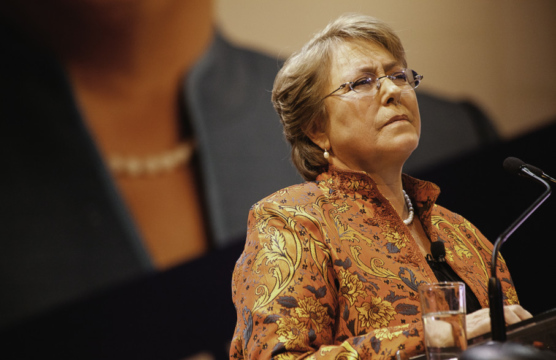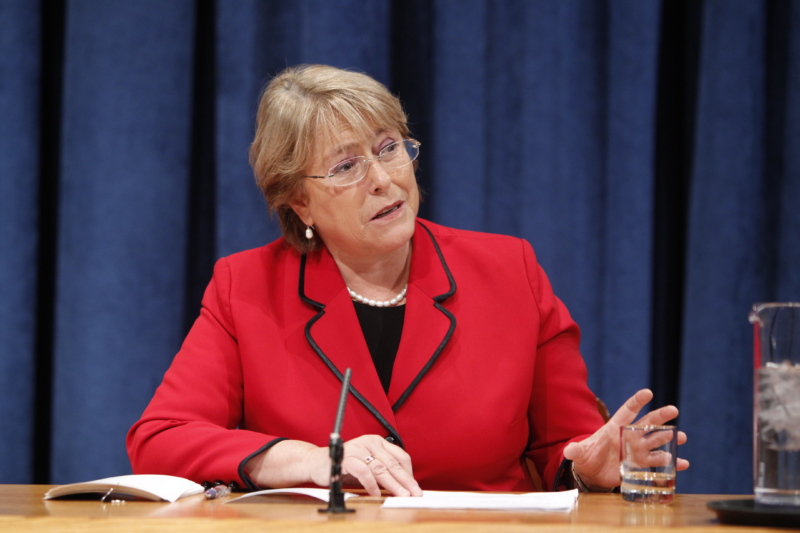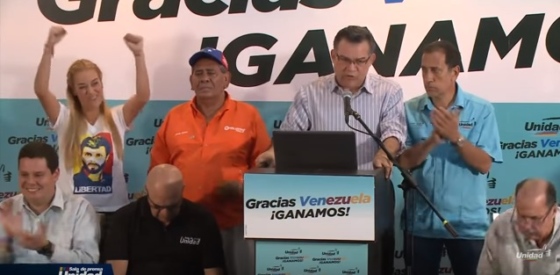
Bachelet’s Regional Challenges
Even before Michelle Bachelet began her second term she got a taste of the difficult regional climate she will have to deal with over the next four years.
This post is also available in: Español
In January, the surprising emergence of Juan Guaidó as the opposition’s leader was followed by months of frenetic activity on the Venezuela crisis. But the National Assembly president’s bet that massive internal mobilization and international pressure would bring an end to the Maduro dictatorship failed.
Today there seems to be a pause in the high drama. No one is quite sure what happens next. Talks in Oslo are secretive and progress is uncertain. Street protests across Venezuela have calmed down. In Washington, there is, for the moment, less talk about Venezuela. President Trump has even stopped tweeting about the hemisphere’s worst crisis.
It is in this context that former Chilean president, Michelle Bachelet, now the UN High Commissioner for Human Rights, is making a three-day visit to Venezuela. The visit comes at a critical moment and will be closely watched. Planned meetings cover the gamut – from Maduro and senior government officials, Guaidó and other opposition figures, economic leaders, representatives of civil society, and of course victims of human rights violations.
Although it is hard to predict the final result of the visit, there is little doubt that both sides of this tragic and protracted stalemate will seek to take maximum political advantage. For Maduro, the potential benefits of the Bachelet visit are obvious: he can try and exploit it to legitimize his dictatorial rule. The message to the international community would be clear: despite the fact that, in accordance with the constitution, over 50 governments have recognized Guaido as Venezuela’s interim president, Maduro is firmly in control of the national territory. However one wishes to describe Maduro, the UN High Commissioner for Human Rights could hardly avoid meeting with him on an official visit. The government hopes the photo of Bachelet and Maduro will help overcome its isolation from most Latin American and European nations.
Maduro’s decision to release some 21 political prisoners in advance of the visit was intended to project the regime’s softer side and gain international goodwill (according to credible human rights groups there are 700 political prisoners in Venezuela). Nonetheless, it is hard to imagine that Bachelet will do anything but issue a very severe report on the grave human rights situation in Venezuela. Her team from the US High Commissioner recently made a scathing assessment. Although Maduro will do his best to show a more positive image, it is impossible to hide Venezuela’s catastrophe: the inhuman conditions of jails and political prisoners; the refugee crisis; the disastrous health system; the absence of any functioning institutions; and the flagrant and systematic violation of civil and political rights.
In that sense, Bachelet’s visit could also be costly for the regime and offer an opportunity for the country’s democratic forces. It could put the Venezuela crisis back in center stage globally and help gain more sympathy for the many victims of human rights violations. And it might enable the United Nations to position itself as a more credible and effective player in the Venezuela crisis. So far it has been marginal. In the end, some negotiation will be necessary. International organizations like the UN will have a critical role to play in implementing whatever agreements are reached and assisting a nation desperate for profound change.
Even before Michelle Bachelet began her second term she got a taste of the difficult regional climate she will have to deal with over the next four years.
Bachelet has started her term with an ambitious agenda that includes tax, education, and constitutional reforms.
What do the election results mean for President Nicolás Maduro and his grip on the presidency?
 Flickr / UN Women / CC BY-NC-ND 2.0
Flickr / UN Women / CC BY-NC-ND 2.0
